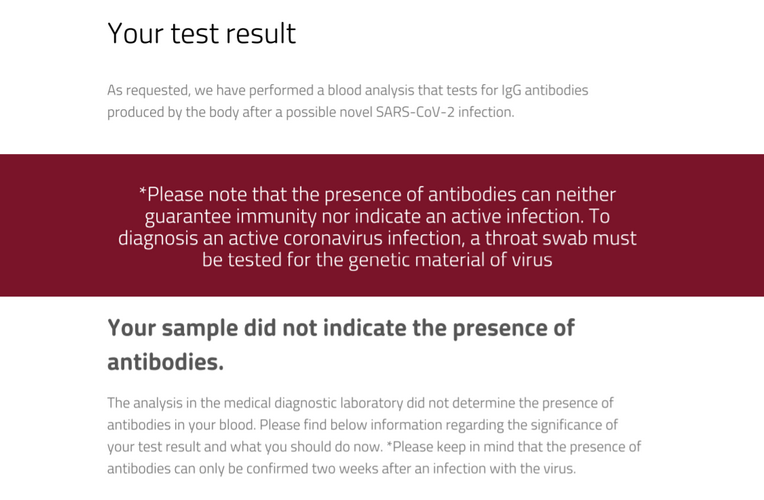
I have been fortunate to have felt physically well during all this. We think James had Covid-19 in May, but both his test (through NHS) and mine (thanks to work) were negative. He was in bed for two weeks (although no fever or cough) which was extremely unusual as he rarely gets sick. Back then, little was known about the immunity that having Covid-19 gave you. Even now, there isn’t much data. There is a man in Hong Kong that tested positive for Covid-19 four months after his initial positive test. This is worrisome for those relying on a vaccine to make the world return to normal. Will a vaccine need to be annual, like the flu shot? But that is an entirely different post for another day.
If you contract Covid-19, your body should elicit a immune response in which B-cells are produced to identify the virus and destroy it. Having an antibody test is a way to see if you have these protector cells available. Cerascreen contacted me to try out their at home antibody test for Covid-19. You may remember I did another at home test for food interolerance back in February. The general collection technique was the same. Prick your finger, drip blood into a tube and send off for analysis.

The Cerascreen test kits were in high demand when I ordered mine in June so it took a week for it to arrive. You want to collect your blood sample on Monday or Tuesday morning and post the same day so the sample can swiftly arrive at the testing centre. No refrigeration is needed. The next step is just wait for an email saying you results are available on their website. You can then log in and download your seven page report. It provided a lot of information about how to interpret the results and what to do if you are still feeling ill.

Antibody tests have two measures that indicate how reliable a test is- sensitivity and specificity. In this case, sensitivity means the test will detect everyone who has the antibodies and give a positive result. Specificity means how many false positives it will detect. At the start of the pandemic, Roche antibody tests were known as the gold standard of antibody testing (specificity greater than 99.8% and sensitivity of 100% (14 Days post-PCR confirmation). Unfortunately, many companies came out with kits of varying quality and their customers were scammed out of money. The Cerascreen kit has a sensitivity of 97.4-100%. and specificity of 98.9-99.2%.
As I mentioned before, we were convinced that James has the virus, even though his (traditional) test result and mine were both negative. We continued to share a bed while he was sick and have always had separate bath towels. He said he made an extra effort to wash his hands well while sick too. One of the frustrating things about Covid-19 is how people can be asymptomatic and therefore vectors of the disease. Also, symptoms can be delayed. James’s GP said that depending on when you obtain a sample (day 3 of symptoms versus day 5) can also influence the test results.
It took about a week for my results to arrive via email. My antibody test was negative, meaning that I had not had Covid-19 at the time I took the test in June. I was partially surprised because I don’t have a great immune system (pneumonia, chicken pox, glandular fever, blood clot, etc). I thought for sure if James had it, I would have too (even though this would have meant that I was asymptomatic).
Why would you want an antibody test? Some people might want peace of mind that they have already had the virus and therefore can’t infect anyone when visiting loved ones or their colleagues. Perhaps they would decline a vaccination if there was a vaccine shortage if they tested positive for antibodies. There is no way of knowing when a person had Covid-19 though from the antibody test. Whether you test positive or negative for antibodies, you should still take precautions such as wearing a face covering, using hand sanitizer and social distancing as it is still unclear how long the antibodies will last for. It also puts people at ease to see others taking the same precautions. By making it the social norm, we can make these practices more commonplace.
I feel very fortunate to have been healthy so far in 2020 and am grateful for this. Please take care of yourself and loved ones as we continue to navigate through this global crisis.
Learn more about antibody testing over on the NHS website.
Cerascreen kindly gifted me the Covid-19 antibody test. All opinions are honest and my own. The Cerascreen Covid-19 kit is now on offer for 5% off. The price includes shipping, analysis and test report.



Recent Comments